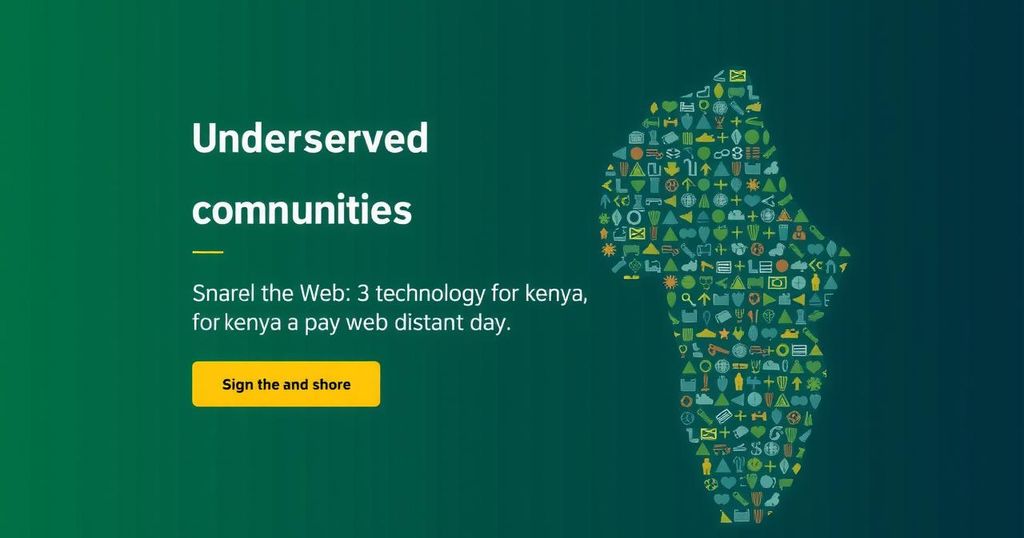The Reserve Bank of Zimbabwe has introduced a gold-backed digital token aimed at promoting economic inclusion, while Kenya’s Nairobi Securities Exchange is leveraging web3 technology to tokenize traditional assets. These initiatives allow lower-income individuals access to investment opportunities in gold, real estate, and agriculture, thus fostering broader financial accessibility and empowerment within these regions.
On October 5, 2023, John Mangudya, the Governor of the Reserve Bank of Zimbabwe, revealed a groundbreaking development for the nation. The introduction of a gold-backed digital token will not only facilitate domestic transactions without reliance on the US dollar but also enable individuals in lower-income segments to own a portion of gold. Historically, gold ownership in Zimbabwe has been limited to the wealthy; thus, this initiative is poised to democratize access to this valuable resource. In Kenya, similar advancements are underway, as the Nairobi Securities Exchange (NSE) is initiating the use of web3 technology to tokenize traditional assets. This empowerment will benefit broader socioeconomic strata by allowing fractional investments. The rise of web3, which encompasses decentralized ledger technology (DLT), offers a pathway for digitizing real-world assets, thereby enhancing accessibility for investors who may not have previously engaged in such markets. The NSE’s recent collaboration with the Hedera Council marks a significant step towards launching digital tokenized securities that may offer investments in Kenyan stocks by the end of the year. This innovative partnership aims to promote fractional ownership opportunities across various sectors, including real estate and commodities, facilitating investment for a more inclusive demographic. Moreover, the private firm Ubuntu Tribe endeavors to obtain authorization to tokenize gold, presenting a chance for smaller investors to acquire shares in this precious metal. Mathew Munyao, the Web3 culture manager at Ubuntu Tribe, states that this effort aims to create equitable investment opportunities, particularly in a landscape where rare earth minerals have traditionally eluded lower-income populations. According to Mr. Munyao, “The main idea behind tokenising gold is to give everyone equal access to opportunities. Right now, not everyone in Kenya can invest in the rare earth minerals.” The implications of such tokenization extend beyond mere investment; they present strategies for savings and asset preservation in an economy where the local currency has been notably unstable. Other participants in this movement include Alphbloq, focusing on real estate asset digitization, as well as Kenya Security Tokenisation and My Shamba, which aim to tokenize agricultural assets. Through these diverse initiatives, citizens can invest in traditionally exclusive markets, promoting wealth creation opportunities for a broader audience. In summary, the shared pursuit of asset tokenization in Zimbabwe and Kenya underscores the transformative potential of digital technologies in fostering economic inclusion. Such innovations are instrumental in enabling access to real assets that were once confined to the affluent—empowering impoverished individuals to participate in wealth generation and ultimately promoting financial stability within the region.
The emergence of web3 technology and asset tokenization is reshaping financial landscapes in Africa. The Reserve Bank of Zimbabwe has taken a notable step by introducing a gold-backed digital token to support broader economic participation and independence from foreign currencies. Similarly, Kenya’s Nairobi Securities Exchange is exploring these advancements to widen investment opportunities for all socioeconomic classes, particularly marginalized groups. This represents a paradigm shift towards a more inclusive financial future, leveraging technology to break down barriers that traditionally separated asset ownership between the rich and the poor.
In conclusion, the strides made in Zimbabwe and Kenya toward integrating web3 technology and asset tokenization reflect a significant effort to democratize financial opportunities. By allowing fractional ownership of assets such as gold, real estate, and agricultural investments, these initiatives are crucial in promoting economic empowerment for low-income individuals and fostering a more inclusive financial environment. These developments not only enhance individual investment potential but also contribute positively to the overall economic stability of both nations.
Original Source: www.theeastafrican.co.ke






